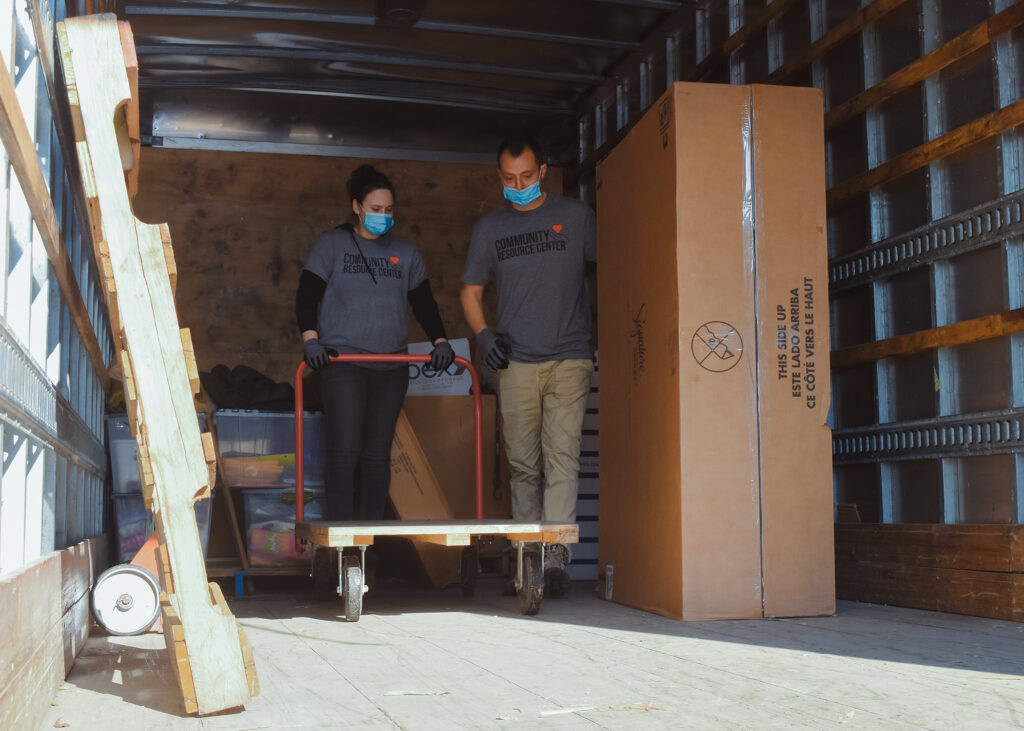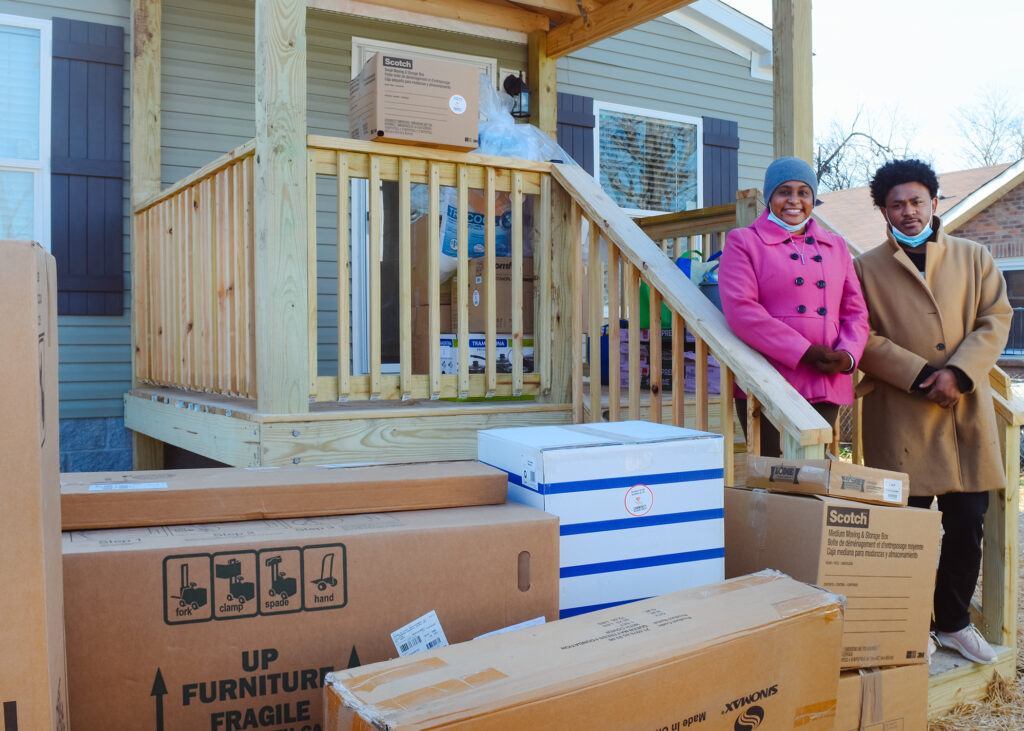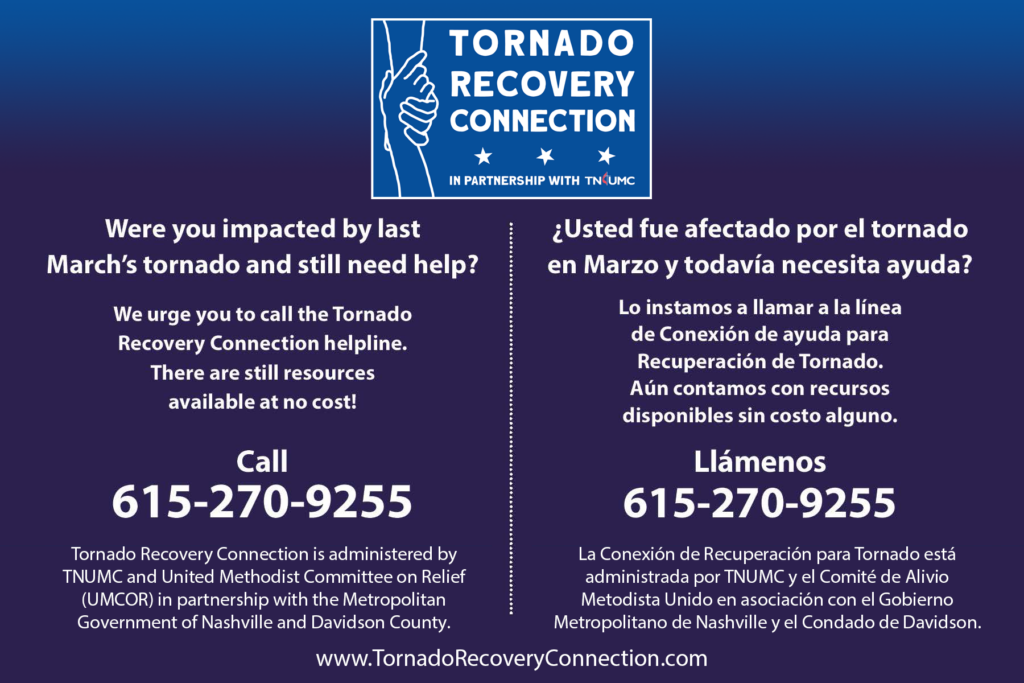Through a collaborative community effort after the March 2020 tornado, Carol Wilson finally returns home.
It was 2 a.m. on March 3, 2020, when LaToria Wilson’s phone rang.
It was her brother. He said a tornado had devastated their mother Carol’s neighborhood. LaToria lived in Antioch, and — shocked — she told her brother she’d only heard strong winds.
“He said, ‘Come out north, and you will see what I’m talking about,’” she recalled.
LaToria drove to her mother’s house in North Nashville in the neighborhood near Tennessee State University.
“It was pitch black,” she said. The park across the street looked barren. “No trees, no basketball goals, no swing set — all of that was completely leveled.”
LaToria learned that her mother had awakened around midnight and moved from her bed to her couch in the living room. About an hour later, an EF3 tornado ripped its way through the neighborhood, dropping two large trees into her bedroom and bathroom.
“When you came in the house, you could hear the trees still settling inside of the house — cracking, going down deeper into the house,” LaToria said.
The shock of seeing her home in such a shape was too much for her mother. The trees had landed right where she had been sleeping just an hour before the tornado hit.
“My mama, she’s really not much of a crier,” LaToria said. “So to see her doubled over, crying. That really affected all of us, because we don’t see her like that, at all. She’s the strongest.”
LaToria said her mother, a 40-year employee of Monroe Carell Children’s Hospital at Vanderbilt, had lived in the house more than 16 years and had it nearly paid off.
“She’s older. She’s trying to retire,” LaToria said. “It was devastating to know that it was all taken away literally in the blink of an eye.”
Carol, her home unsalvageable, spent months bouncing between sleeping at her children’s homes and her own mother’s house. LaToria, the eldest of five siblings, took the lead on helping her mother navigate the arduous recovery process.
“Nobody had a game plan for this,” LaToria said. “We were pretty much winging it and trying to get more information and education about whatever resources were available for victims and survivors.”
LaToria described the ups and downs of the recovery process: The waiting, the frustration, the FEMA (Federal Emergency Management Agency) applications, the lingering shock. Then dealing with the complications of a world shut down by the coronavirus pandemic on top of everything else.
“It’s been peaks and valleys the whole time,” she said, adding that the family felt things start to click when Carol found a new modular home to replace the one that had been destroyed. “When you’re not just looking at it on the internet, when you’re actually in it. I think that was the turning point for us.”
Carol connected with a case manager from the Tornado Recovery Connection (TRC), a helpline administered by the Tennessee Conference of the United Methodist Church (TNUMC) and United Methodist Committee on Relief (UMCOR) in partnership with the Metropolitan Government of Nashville and Davidson County.
A resource of the Davidson Co. Long-Term Recovery Group, the Tornado Recovery Connection provides tornado survivors throughout Middle Tennessee with resources for immediate relief as well as helps identify those with long-term needs.
The TRC connected the Wilson family to the Community Resource Center (CRC), the nonprofit deputized by the city of Nashville to supply disaster survivors with essential items.
Just before Christmas, the CRC delivered a truckload of furniture, dishes, utensils, lamps, toiletries, appliances, linens, and other essentials to Carol’s new home. LaToria and her brother unpacked and arranged the items in the hopes of setting up the new house just the way their mother would like it so they could unveil it to her and finally close the book on a long, difficult year.


“She was really overwhelmed with joy and can now breathe a sigh of relief,” LaToria said of her mother’s reaction to the new home, which is filled with replacement furniture and other creature comforts she had lost in the tornado.
Now her mother is in the unpacking and settling phase, she said. The family is looking forward to the next time they can all get together in the new home and begin to build new memories.
“We are so blessed,” LaToria said, “to have had such awesome people walking and working along the side of us to ensure that we made it to the other side!”
About the Davidson Co. Long-Term Recovery Group
The Davidson Co. Long-Term Recovery Group is a volunteer collaboration of multiple organizations, including but not limited to nonprofit agencies, community civic and service groups, faith-based, and educational groups that meet and work together to address the long-term needs of Metro Nashville residents who have been affected by disaster. As detailed in its bylaws, the LTRG’s mission is to provide coordinated management of the long-term recovery response to individuals in Nashville/Davidson County affected by disaster. The LTRG offers additional long-term assistance to individuals affected by the disaster who do not have adequate personal resources, and stewards volunteer, material and financial resources. Its goal is to provide cost-effective and coordinated delivery of services so that survivors receive unduplicated assistance in a timely, efficient and equitable manner.

1 thought on ““Nobody Had a Game Plan for This…””
Comments are closed.